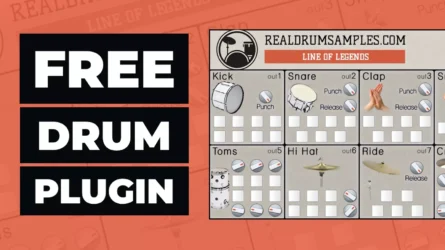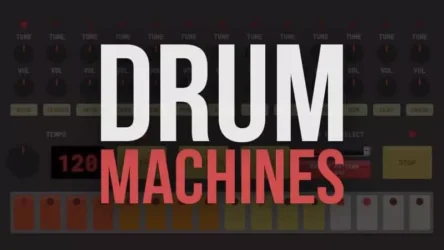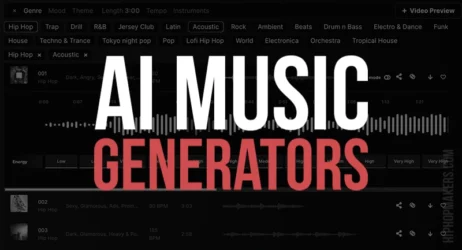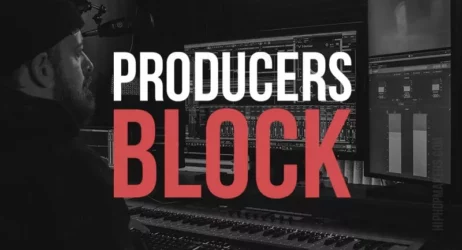This guide will answer what is ASCAP, what they do, how much it cost, how ASCAP royalties work, and much more.
- What Is ASCAP
- What Does ASCAP Do
- What Does ASCAP Do for Musicians
- What Are The ASCAP Fees
- BMI vs. ASCAP
- How Do ASCAP Royalties Work?
- What Is ASCAP Licensing
- What Royalties Does ASCAP Collect
- How Long Does An ASCAP Payment Take
- Does ASCAP Have a Mobile App
- Where is the ASCAP Login Pag
- ASCAP Overview
What Is ASCAP?
ASCAP stands for The American Society of Composers, Authors, and Publishers. It is a non-profit Performance Rights Organization that looks after its members’ musical copyrights by checking public performances of their music, whether a live performance or broadcast and pays royalties.
The ASCAP is an American organization that was established in 1914. It was the first official body formed to mainly defend the rights of composers and collect a certain amount of fees for the public performance of the member’s music.
Complying with copyright and intellectual property laws, the organization collects royalties and licensing charges from broadcasters and music presenters. The amount collected is then returned to members, lyricists, music publishers, and composers.
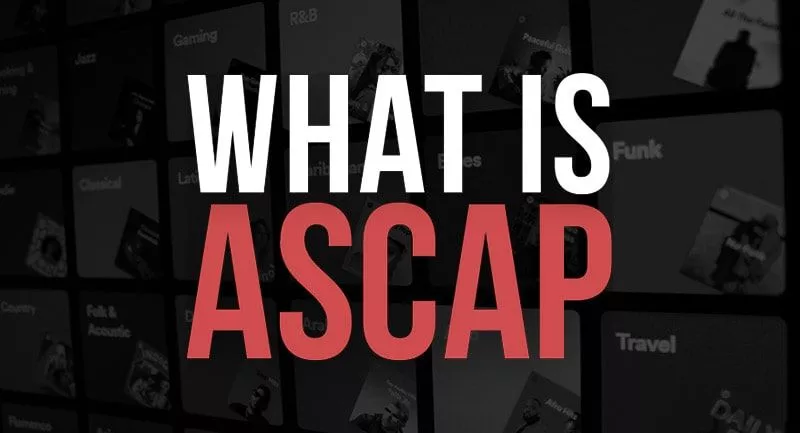
The Copyright Act of 1909 in the United States reaffirmed the rights of lyricists and songwriters for the performance of their music.
Before the formation of ASCAP, songwriters had to license and collect fees for every music performance individually.
The platform ASCAP provided a central agency for the collection of money due to songwriters and their respective payments.
The business model of ASCAP is relatively straightforward. The organization collects licensing fees from the users of music that the ASCAP members have created. It then distributes the collected amount to its members in the form of royalties.
It basically functions as the middleman between the artist and the user. When someone plays a song, the user does not pay the copyright holder, nor does the music creator bill the radio station to use his song.
Songs have two categories of rights:
- Writer’s Share
- Publisher’s Share
As soon as an artist writes a song, he owns both the songwriter’s rights and publishing rights. Eventually, the publishing rights can be sold to a publishing company through a publishing deal.
Sometimes, the share of songwriters is divided into multiple sections. If there’s a band or a co-writer, the royalties are split up according to their agreement.
The main reason for registering your songs with a PRO is that the artist is paid for the public performance of an artist’s music.
A PRO offers artists not just money but gear insurance, discounts, medical insurance, and various music-related services that are directly associated with ASCAP or its affiliate organization. PROs like BMI, and SESAC offer similar services.
Other than the financial benefit, PROs offer network opportunities to artists that are pretty challenging to achieve on their own.
They host conferences with expert panelists and networking events that help artists connect with the right people from the industry.
What Does ASCAP Do?
The primary purpose of ASCAP is to license, collect, and distribute royalties from public performances for publishers and songwriters. This includes the music:
- That is broadcasted on radio or satellite radio
- That is used in movies or TV, including commercials
- That is performed or streamed live in places like restaurants, bars, and performance venues.
- That is streamed on digital services like Pandora and Spotify.
ASCAP ensures that all the venues have a license to play music, and they collect royalties from all public performances. It is their job to track who hasn’t paid their share and then decide the publisher, composer, and songwriter that has to be paid for each instance.
They put together a list of all the music that is played at different venues, and this information is included with the payment released to each artist that it represents.
What Does ASCAP Do for Musicians?
The non-profit organization ASCAP is the oldest of the three big performance-rights organizations. It is unique because it is controlled entirely by music publishers, writers, and composers that make up its membership. It has over 550,000 members with more than 10 million works.
ASCAP doesn’t give an official breakdown of how each royalty is calculated for the reason that it is too complicated to convey in simpler terms.
However, it states that 88% of every dollar that it receives from the license holders is paid to the members in the form of royalties. Some of the added benefits of an ASCAP membership are:
- Membership in the MusicPro program, which gives discounts on instruments, dental, health, and life insurance
- Songwriters Hall of Fame discounted membership
- Discount on rental cars and hotels
- Membership in US Alliance Federal Credit Union
- Discount on ASCAP digital tools, which is a collection of marketing apps
Do I Have to Pay ASCAP? What Is the ASCAP Fee?
Joining ASCAP as a publisher and a songwriter costs a one-time membership fee of $50, and the cost remains unchanged if you register with them as one or the other. In order to sign-up, your social security number is required, but if you are a foreigner, they will accept your foreign tax information.
What Is the Difference Between BMI & ASCAP?
BMI is a non-profit organization and is the largest of the PROs. It represents over 900,000 artists and over 14 million musical works.
BMI collected $1.199 billion as licensing fees and paid out $1.12 billion as royalties to its publishers and songwriters. Their membership is free for songwriters, but for publishers, there’s a $150 fee for individual artists and $250 for companies.
Both ASCAP and BMI are PROs that function similarly. Let’s have a look at the benefits of both BMI and ASCAP.
| ASCAP | BMI |
| Membership in the U.S Alliance Federal Credit Union | Songwriting camps and workshops for musicians |
| Discounts on health, instrument, dental, and life insurance through its MusicPro program | Membership discount to BMI affiliates |
| Discounted membership to Songwriters Hall of Fame | Discount for songwriters Hall of Fame |
| Discounts on music-related services and retail products | Discounts on Billboard Latin Conference, Billboarding touring conference, video games live |
| Hotel and rental car discounts | Discount for many songwriting apps and services |
| Annual ASCAP ‘I Create Music’ Expo | The production marketplace |
BMI collects digital royalties, including fees played by Sirius XM, Pandora, Cable TV, and other digital services. It is interesting to note that BMI only collects royalties from non-interactive playlists/ streams.
That means stations where algorithms or DJs select your music, or when somebody searches your songs and plays it, the artist is paid differently.
iTunes Radio, Spotify, and Rdio have struck different deals with labels and distributors that enable them to bypass SoundExchange and pay the rights holders directly.
Related: What is BMI Music
How Do ASCAP Royalties Work?
The first part of calculating an artist’s royalties is the identification of the uses of an artist’s music. This is achieved through electronic logs and manual reports that a business tracks when they use an artist’s music, as part of their licensing agreements.
It is quite possible that each use of an artist’s song is not recorded; therefore, the calculation process is not perfect. To explain in simpler terms:
If a cover artist performs a song live, the venue should be licensed with ASCAP. If you perform a song in a live performance, you have to report it in the ASCAP OnStage performance claim.
At the time of calculating royalties, ASCAP takes into account the various performance types that use your original composition. If a composition is used on TV, it will generate more royalties for the artist than a single stream for a Spotify account.
When ASCAP calculates royalties, it also accounts for the specific license fees that some ASCAP license holders pay when using an artist’s composition. ASCAP also records the types of mediums that use compositions and makes sure that the artist receives relevant royalties.
After tabulating several other factors, they can calculate performance credits for every composition rights holder. The credits are then multiplied by the credit value.
What Is ASCAP Licensing?
ASCAP licenses its member’s work to anyone who wishes to use it for public performance. This extends to the coverage of a song, the performance of compositions at an event, or playing a music album in a business.
Any occasion which has a significant number of people gathered is called a public performance. ASCAP should be contacted for a license if a composition is included in TV, radio broadcast, internet play, or other mediums.
ASCAP license to:
- Concert Presenters
- Hotels
- Amusement Parks
- Music Venues & Clubs
- Mobile Entertainment
- Local Government Bodies
- College & Universities
- Websites
- Fitness Clubs & Gyms
What Royalties Does ASCAP Collect?
A composition generates two kinds of royalties: performance royalties and mechanical royalties. Every time someone streams, reproduces, or downloads a song, mechanical royalties are generated. Only publishing administrators and publishers can collect mechanical royalties, and as ASCAP is neither, it cannot collect mechanical royalties.
ASCAP collects performance royalties generated from the live performance of songs, including when the song is played on the TV, on the radio, on Apple’s Music account, or at a bar. The performance royalties are further divided into the writer’s share and the publisher’s share.
If the artist writes a song without a publisher, he owns 100% of his song but can only collect 50% of the royalties shared through ASCAP.
How Long Does An ASCAP Payment Take?
ASCAP pays members 6 to 7 months after each performance quarter. Read more.
Does ASCAP Have a Mobile App?
Yes, they have a mobile app called ASCAP Mobile Pass.
Where is the ASCAP Login Page?
If you are an ASCAP member, you can visit ascap.com/member-access to login to the ASCAP website.
ASCAP Overview
ASCAP is an acronym for The American Society of Composers, Authors, and Publishers. This non-profit organization makes sure that its members are paid royalties when their music is performed publicly, whether live or over the air.
ASCAP is a cornerstone in the music industry, helping to ensure that music creators, like professional songwriters and musicians, are paid the performance royalties they’ve earned.
They navigate the complexities of the music business so the creators can focus on what they do best – making music.
Through ASCAP membership, music users gain access to a vast catalog of broadcast music, ranging from concert music to musical theatre.
Not only does this system encourage a diverse music culture, but it also ensures that the music generates a fair income for the copyright holders, be they individual creators or record labels.
The publishers that join ASCAP, like Broadcast Music Inc, are invaluable partners in the music publishing realm. Their collaboration with ASCAP contributes to the balance in the distribution of royalties in this sector. This commitment to collecting royalties is just one of the many member benefits that ASCAP offers.
In essence, ASCAP is vital to the vibrancy and fairness of the music industry, providing a conduit between music users and music creators. They help turn the art of music into a sustainable business, proving that making a living in the music industry is not only possible but can also be rewarding.
I hope you now have a good understanding of what ASCAP is and how they work.

